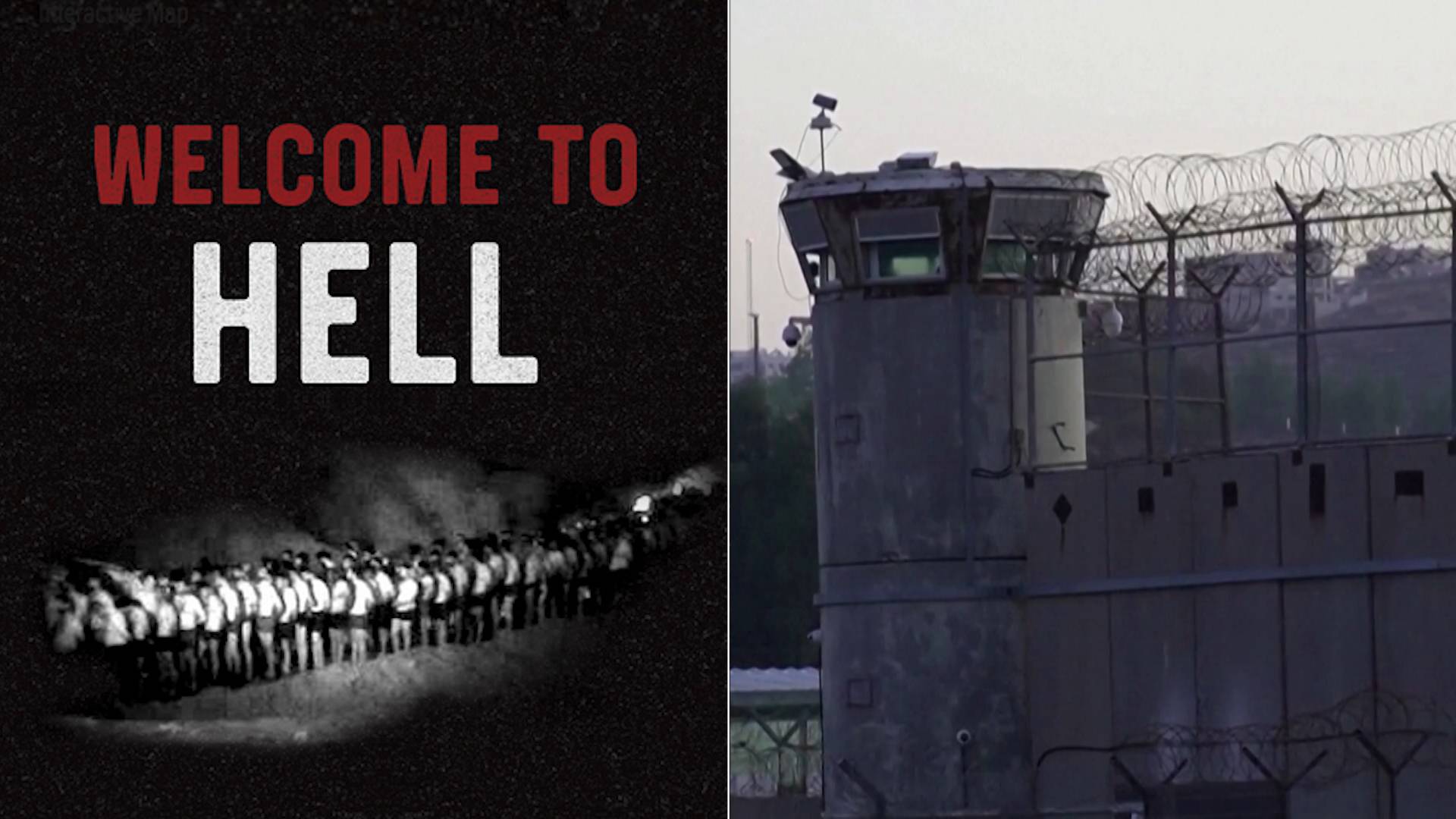The Israeli human rights group B’Tselem has published a major new report documenting how the Israeli prison system has become “a network of torture camps,” where physical, psychological and sexual abuse of Palestinian prisoners is normalized and routine.
The report, titled “Welcome to Hell,” collects the testimony of 55 Palestinians who were detained by Israeli authorities since October 7 and later released, almost all without charges. This comes as a group of U.N. experts condemned the widespread torture of Palestinians and as Israel’s Channel 12 News aired shocking footage of Israeli soldiers sexually abusing a prisoner at the Sde Teiman army base, where thousands of detainees from Gaza are held.
Sarit Michaeli, the international advocacy lead for B’Tselem, says the abuse in Israeli prisons is “systemic, ongoing and state-sanctioned,” reflecting the cruelty and thirst for revenge among a growing number of Israelis. “They would like to have a completely open field in terms of what they can do to Palestinians,” says Michaeli.
You can find the full report of testimonies here



Where’s the source. I’ve got one that says the opposite.
Apartheid too? I will say this, doubt you’ll see anyone who gives a single fuck.
Like here. About 6000 naturalisations per year.
Are there issues? Yes. Is it Apartheid? If you think it is, then you are trivialising the shit out of what South Africa has done. What Israel is doing.
The Soviet Union settled plenty of people in Estonia when they occupied it, those people didn’t get Estonian citizenship once Estonia got its independence, they got permanent residencies instead. A metric fuckton naturalised in the year since then, which involved learning Estonian.
Bit of a difference because Estonia was the victim of colonialism, not the aggressor, they would’ve been perfectly within their right to just expel everyone, but the associated identity vs. nationality stuff very much applies.
I’m with the demons and henchman.
That’s a lot of things, bad things, but it’s not Apartheid. Words have meaning. It’s also not current.
Here the conclusion of your own source.
Definition of apartheid:
I’ve provided sources that prove it. Political rights deprived as well as civil. Laws enabling it.
They can, and do, become citizens. The procedure is the same as for everyone else. Are you telling me that black people in South Africa were able to do that.
Go on how they do and can become citizens. I don’t know how many braincells I’ve lost talking to you. It’s easier for a Palestinian to get citizenship in Israel than it is for a zainichi Korean. They can’t even be Korean anymore to get citizenship. Dude what the fuck are you talking about here.
Hell no. Should Zainichi have an easier path to citizenship? I do think so, here in Germany we have an accelerated procedure for people who were born and went to school here, no matter the parentage. Is it any more involved to get Japanese citizenship as a Zainichi than as a German? Nope.
Not allowing dual citizenship isn’t anything out of the ordinary either, btw.
People born in Germany are given citizenship. Zainichi Koreans are not in Japan. There is no accelerated procedure for zainichi Koreans who went to school. In fact japanese law even makes it harder for Korean schoolchildren.